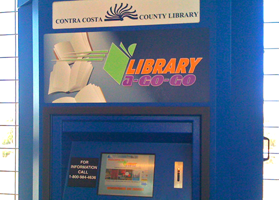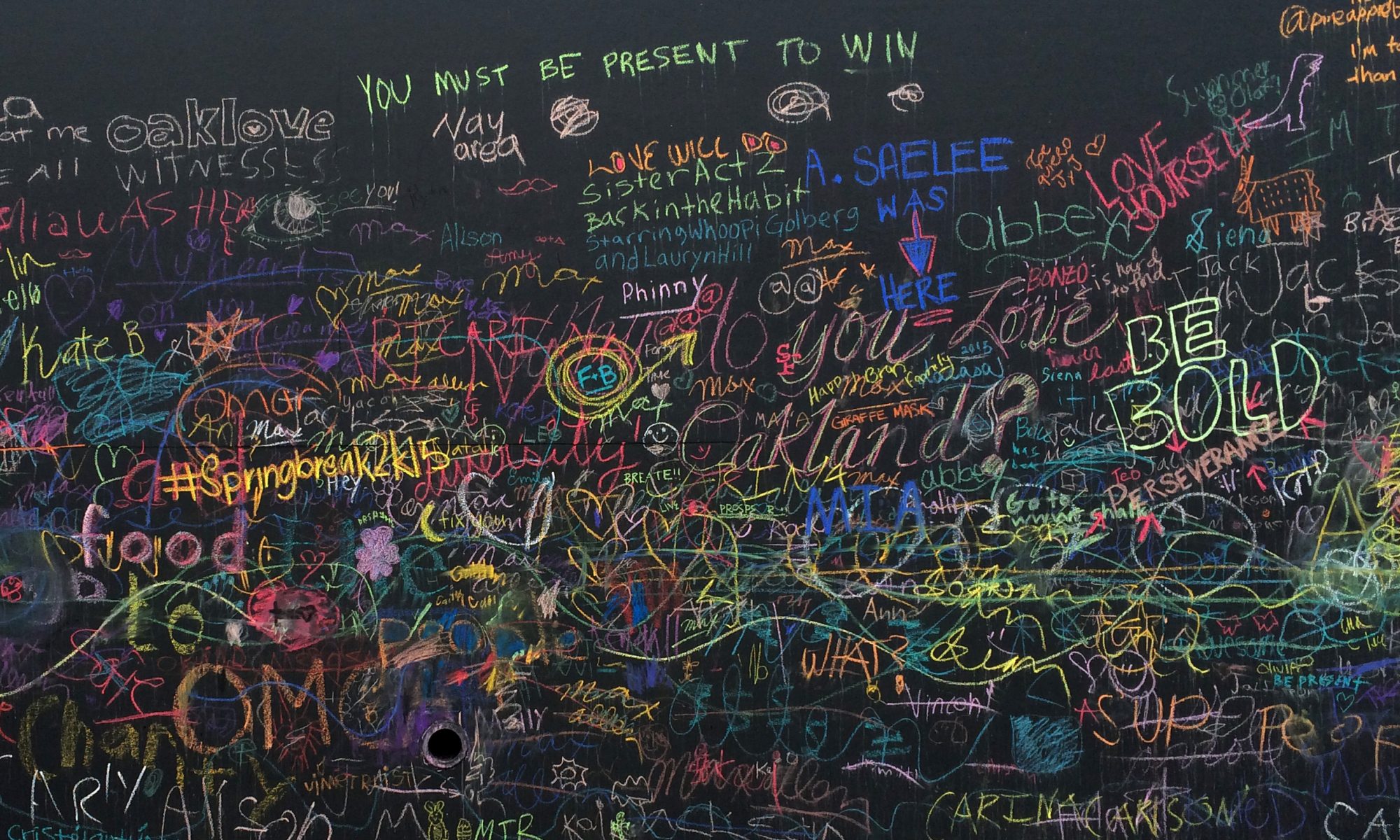A neighbor has a grove of Matilija poppies. I love how happy and weird these fried eggs on stems are, just waving around in the breeze.
My political journey, part 3: Choosing civil rights over states’ rights
When I said in Part I that this wasn’t a story about opening my heart, that wasn’t entirely true. There is one place my heart lacked compassion: the criminal justice system. My last bastion of conservatism was the belief that our system of policing and laws was fair, so if you were caught up in the system you probably did something. (This callousness pains me to this day. It is one of my greatest shames.) Further, that being tough on crime was a good thing, though I did believe it should be backstopped by liberal higher courts.
By this time I’m living in Chicago, it’s almost Y2K, and the Innocence Project is about to shake everything up. I evolved with Governor Ryan in real time, going from skepticism to shock. The exonerations started rolling in. The evidence of bad convictions was incontrovertible. If these cases, with the most at stake, could be so egregiously flawed, what did that mean for the rest? Twenty years on, I’m still unpacking just how messed up our policing, laws, courts, and for-profit prisons are. How, at every single step, injustice is baked in and bias is enforced. Every year I learn a little more — a lot more this year — and it seems as though there is no bottom to this horrible well.
So I’d come to believe that the world’s many injustices require intervention, but I’d yet to fully see why a strong federal government has to be part of the solution.
And as expanding civil rights grew ever more important to me, I start noticing how often states hold back progress. From segregation to voting rights and abortion access, states’ rights have been wielded as a cudgel to block people from their constitutional rights and freedoms. Rather than state power being a mechanism for greater freedom, as the conservative position holds, when it comes to human rights the reverse is more often true. Left to the states, mixed marriages would likely still be outlawed in some states.
When I say “states”, that hides the truth behind an abstraction. To be clear, states are made up of citizens and, too often, it’s people holding back other people. Freedom for me but not for thee! Sometimes, the federal government is the only mechanism for meaningful change.
In the end, I had to make a choice between states’ rights and civil rights. Framed this way, the choice was obvious: I had to choose civil rights. This fully cemented me on the left.
Note that my basic beliefs didn’t really have to change, I just had to focus on impact instead of intent. I still think a limited federal government makes sense, on paper! It’s a good theory. And yet, nearly all our leaps forward have been federal. Ending slavery. The New Deal. The Civil Rights Act. DOMA. ACA. Can’t argue with the results.
And what happened to my faith that business and the free market are the answer? Well, that’s easy: I started working in Corporate America. I learned that while business can be a force for good — there are of course good ones and I seek them out as a consultant and a consumer — corporations can also be corrupt, money-wasting, incompetent, anti-social, and anti-planet. Worse, bad behavior is encoded and encouraged in our corporate structure and economic models. As long as they benefit from cutting corners to game the numbers, many will.
This understanding all came before the dot com boom and bust, scandals like Enron and Worldcom, the financial crash of 2007. Before business school. Imagine what I think now.
My political journey, part 2: We’re off to see the Grand Wizard
When I was growing up, Tucson seemed small and conservative. Then college took me to Bible-belt Indiana and I discovered what small and conservative truly is. In hindsight, I’d have been hard pressed to pick a worse fit for me than Purdue, culturally and socially, but it was crucial for galvanizing me politically.
Arriving on this strange new planet was a shock, and my worldview didn’t survive first contact. The first thing that hit me were the gender dynamics. It turns out I had grown up in an unusually egalitarian environment. I held my own in sports with the guys. My grandmother had a PhD. My high school Calc II class had more girls than boys. Then I met so many young women who were held back, put down, and put in boxes because of their gender. This was my first galvanizing moment, realizing that being feminist wasn’t a bad thing. And that I was one.
Next I found out the Grand Wizard lived 20 miles down the road. The Grand Wizard! Truly, I was gobsmacked. I didn’t know the KKK even still existed. In History class, we were taught there was slavery (bad) followed by Jim Crow (also very bad). Then came a Civil Rights Act (good!) and they all lived happily ever after. In the way of sheltered white folks everywhere, I accepted the fairy tale at face value. Unsurprisingly, racism there was bad. Really bad. Once I started looking, it was unmissable.
It didn’t take long to dismantle much of what I had believed. And it boiled down to one thing: I learned that life wasn’t fair.
This is crucial to understanding conservative views, at least in that less incendiary time. If life is fundamentally fair, then there is no need for affirmative action. No need for regulation. No need for welfare. If life is fair, success and failure are earned. Poor people did something wrong, or didn’t do enough, and it’s on them to fix it. If someone is successful, they must have done something smart or good, and deserve to keep the spoils. This is part and parcel of the American Dream.
Obviously, the fact that I needed to learn all this shows what kind of well-off bubble I was raised in. But once I started to see systemic biases and inequality and how they shaped people’s lives — and, let’s be honest, I had barely scratched the surface — I could no longer hang with a party that insisted hard work was enough.
These were the Clinton years, giving me an easy bridge to a moderate, welfare-to-work, capitalistic Democratic Party. It took a few years to identify as a Democrat, but I was on my way. The Republican position felt too heartless.
But there are still more big revelations on the horizon for me, including the criminal justice system and the failings of the market. Continued in Part III
My political journey, part 1: Confessions of a Teen Age Republican
I relish telling the story of how I used to be a registered Republican. It’s good for shock value, considering that today I’m a flaming California liberal! Even better, I was a Teen Age Republican in Arizona, a state infamous for its peculiar politics. Forget drunken bonfires in the desert, this was how I my misspent my youth.
Reader, I rush to reassure you I was never socially conservative. My issues were strictly states’ rights and fiscal responsibility. This isn’t a story about how I had to open my heart. It’s a story of having to open my eyes.
More on that later.
To demonstrate how seriously I took all of this: On my 18th birthday, I drove an hour and a half to register to vote at the Barry M. Goldwater Republican headquarters in Phoenix. Time was of the essence, as the gubernatorial runoff election occurred a mere 6 days later and I could barely squeak under the registration deadline. My motivation had more to do with wanting to participate than excitement for the Republican candidate himself, Fife Symington III. (Fun fact: He won and later resigned over convictions for bank fraud, which is so Arizona.)
I learned political awareness at home. My family was the kind that frequently talked politics and history at the dinner table. While we weren’t activists, being a good citizen and doing one’s civic duty was a cornerstone of our family ethos. Mom is a centrist Democrat, radically pro-choice and in favor of strong social and health care services, but I wouldn’t describe her as liberal. Dad was a pro-gun and pro-choice Republican who leaned Libertarian and read too much Ayn Rand. They regaled us with stories of the 60s and 70s — my favorite was my mom’s sorority house mother getting in trouble for wearing a black arm band when Goldwater lost.
So there we were, a group of suburban white teens waxing philosophic about virtues of capitalism and the perils of government. We were heavily influenced by Reaganomics. We believed a free market would solve problems with greater integrity and efficiency than government ever could. We believed in a safety net, but a very thin one, just enough to keep people from falling in that moment and no more. We believed the world was a meritocracy and hard work was all you needed to get ahead. We believed unions had served their place and were now just getting in the way.
This continued until I left for college in Indiana. There, everything would change.
To be continued! Part II.
No, we can’t agree to disagree
There was a time when I had friends with very different political beliefs. Of course! It would be narrow-minded and dogmatic to exclude people simply because we vote differently. Right?
And this worked because, in theory, we all wanted people to find good employment, have opportunities, be treated fairly. Our hearts were in the right place, we simply had different ideas about what policies and systems would achieve those goals. Remember “compassionate conservatism”? In my earliest voting years I identified as a Republican so I understood both sides as well as the middle.
Times have changed. And I’ve opened my eyes. I don’t see compassion. I see intentional, inhumane cruelty at worst, willful ignorance at best. I hear people say they value fairness yet don’t actually believe anything is unfair so there’s nothing to fix. (Don’t get me started on the idea that it’s white Christians who are being treated unfairly.) I see an iceberg of systemic racism — not to mention sexism, ableism, transphobia, xenophobia — I had only allowed myself to see the tip of previously. I see people doubling down on racism and inciting hate and violence. I see selfishness, venality, and flat-out lying on a scale I could never have imagined. I hear language being so misused that nothing means anything, up is down.
No amount of political cynicism has prepared me for this moment. Even though I’ve been telling a version of this story for close to 20 years! It just keeps getting worse and that keeps surprising me. Clearly, I am not a very good cynic.
So, no, if you identify with this Republican Party — and particularly with this President — then we are not compatible as humans. It’s not a difference in politics, it’s a fundamental difference in character and ethics. Our moral compasses point in different directions, and that’s not something to be celebrated or even set aside.
Shanghai Exhibit
 This week I spent the day in the city with my parents, including a visit to the Shanghai exhibit at the Asian Art Museum. There was no photography allowed, so I couldn’t snap my favorite pieces to show here and I struck out finding them online as well:
This week I spent the day in the city with my parents, including a visit to the Shanghai exhibit at the Asian Art Museum. There was no photography allowed, so I couldn’t snap my favorite pieces to show here and I struck out finding them online as well:
- Shen Roujian, During the Great Leap Forward, 1958
- Chen Yifei, Morning on the Long Canal, 1995
- Li Hua, A Corner of the City, 1947
- Shao Keping, Morning toilet on the Huangpu River, 1961
The biggest surprises for me were the Impressionist and Deco pieces. Deco should not have been a surprise, as it was the first truly global design style. I liked the asymmetry and bamboo motifs, which distinguish it from other regional Deco styles. The most intriguing aspect of the Impressionist work was that much of it was contemporary, yet would have looked right at home hanging next to paintings 100 years older.
The last major point of interest was the cultural debate of “national essence”, the desire to preserve tradition, versus “reformist”, the desire to evolve and revive the art scene by blending new and old. I am a proponent of maintaining tradition, but history has shown time and again that doubling down on the past to the exclusion of all other influences is a losing proposition. A giant painting in the last room was a poster child for this squabble, with some critics arguing it could not be considered contemporary simply because it uses a traditional medium. It seemed like a purely academic argument, because it was obvious to me that this emotional, abstract painting was inarguably contemporary in its composition and style. I thought it was an excellent example of blending the past and present into something progressive but still indelibly Chinese. Then again, what do I know? I’m not a critic.
Library a-Go-Go
 Out at the farthest edges of the Bay Area in Contra Costa County, I saw this amazing mini-library in a BART rail station. From the library web site:
Out at the farthest edges of the Bay Area in Contra Costa County, I saw this amazing mini-library in a BART rail station. From the library web site:
“Library-a-Go-Go is an automated book dispensing machine. It’s a self-contained collection of books that allows Contra Costa County Library card holders to borrow library books and return them when finished.”
The selection is probably quite limited and it doesn’t replace the library browsing experience, but it is a fun idea. Sort of a modern Bookmobile. I like the convenience of being able to get or drop a book on the way to work, and anything that improves library use and access is a good thing. I just hope it actually gets used — the decline of libraries is such a shame.


